 Traumatic head injuries come in many forms. A closed head injury is the sort of injury in which the skull does not break and the dura mater stays intact as well. Though it may seem like a good sign to have a head injury without damaging the skull, closed head injuries can still cause significant damage to the brain.
Traumatic head injuries come in many forms. A closed head injury is the sort of injury in which the skull does not break and the dura mater stays intact as well. Though it may seem like a good sign to have a head injury without damaging the skull, closed head injuries can still cause significant damage to the brain.
During any episode that causes trauma, like a fall, car accident or significant blow to the head, brain injury can occur. It doesn’t happen with every closed head injury, but during some traumatic episodes, the brain hits against the skull, causing injury that can be serious.
When the brain and the skull collide, it can damage some of the brain’s nerves. Those nerves are essential for transmitting brain signals, so injuring them can impair their ability to do their job.
Symptoms of a Closed Head Injury
Monitoring symptoms is especially important after a closed head injury. When a person’s skull is damaged, there are obvious injuries to monitor. Closed head injuries can be especially dangerous because it isn’t always obvious right away how serious the injury is.
If the injury is significant enough, the brain can swell, causing more pressure as the brain cells hit against the skull. Depending on the severity of the injury, this can potentially cause serious damage.
After a closed head injury, here are some symptoms to look out for:
- Unconsciousness
- Feeling dizzy
- Headaches
- Pupil dilation
- Visual problems
- Nausea or vomiting
- Problems with speech
- Changes in behavior or temperament
- Seizures
- Memory loss
- Sensory changes
Long-Term Effects
Since closed head injuries can vary in their severity, the long-term effects can vary as well. The effects depend on what part of the brain is injured. Long-term effects can be physical, impacting the patient’s ability to walk or move. Hand-eye coordination could potentially be impacted as well.
Cognitive function can also get damaged in a closed head injury. This could lead to memory problems or language issues. Personality issues are also a possibility when certain areas of the brain are damaged. Behavior problems could occur.
Treatment and Recovery
Getting better after a closed head injury can be time-intensive. For really severe injuries, a full recovery may not be possible. Sometimes long-term care may be needed. It all depends on what part of the brain is injured and how bad the injuries are.
Seizures, for example, aren’t just a potential sign of a closed head injury. They could also be a long-term outcome of a severe brain injury that could require long-term care. Other types of long-term medical supervision and treatment may be needed, such as occupational therapy or speech therapy.
It is important to note that treatment of closed head injuries doesn’t always mean a full recovery. Sometimes the severity of an injury means that there are areas that won’t return to the way they were before the injury occurred.
When long-term care is needed, it can sometimes get expensive. If someone caused the accident or incident that led to a closed head injury, getting proper compensation can help with the cost of care.
If you have legal questions about an accident that caused a closed head injury, contact us for answers and the help you need.
[otw_shortcode_button href=”https://www.swoperodante.com/contact/” size=”medium” icon_type=”general foundicon-right-arrow” icon_position=”left” shape=”radius” color_class=”otw-red” text_color=”#fff”]Contact our experienced legal team today[/otw_shortcode_button]














